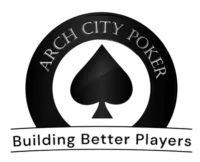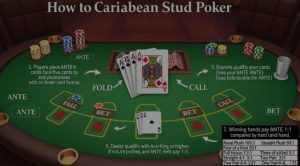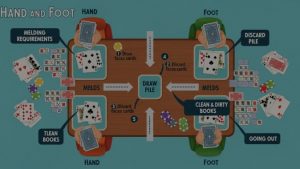Poker players at every level make errors that cost them money and opportunities. The best poker coaching programs identify these patterns and provide solutions that lead to consistent improvement. Seeing what the common mistakes are helps players recognize areas where professional guidance makes a difference in their results.
Playing Too Many Hands from Early Position
Most players struggle with hand selection, particularly from early positions where they lack information about opponents’ actions. Without proper coaching, players often overvalue marginal hands and enter pots with cards that should be folded.
Early position requires tight hand selection because players must act first on all subsequent betting rounds. The best poker coaching emphasizes this concept through systematic hand range analysis and position-based strategies that prevent costly mistakes.
Limping Instead of Raising or Folding
Limping creates weak betting patterns that skilled opponents exploit. Players without coaching often limp with hands they should either raise for value or fold completely. This passive approach leads to playing out of position in multiway pots with unclear objectives.
Coaching programs teach aggressive strategies that build pots with strong hands while avoiding marginal situations. Students learn when to raise, when to fold, and how to avoid the limping trap that plagues recreational players.
Ignoring Stack-to-Pot Ratios
Stack sizes relative to pot sizes determine optimal betting strategies, yet many players overlook this fundamental concept. Without coaching guidance, players make sizing errors that either build pots too large for their holdings or fail to extract maximum value.
The best poker coaching breaks down stack-to-pot ratio concepts into practical applications that students can implement immediately. This knowledge prevents players from making costly all-in decisions with insufficient equity or missing value betting opportunities.
Calling Too Frequently on Later Streets
Excessive calling on turn and river streets destroys win rates for players who lack coaching guidance. These players often convince themselves they have odds to call when facing aggressive betting patterns, leading to systematic losses over time.
Coaching programs teach disciplined folding strategies that preserve bankrolls while identifying spots where calls become profitable. Students learn to analyze betting patterns, hand ranges, and board textures that influence calling decisions.
Failing to Recognize Bluff Catchers
Many players call with hands that beat only bluffs without considering the frequency of opponent bluffing in specific situations. This leads to calling stations who lose money by paying off value bets with marginal holdings.
The best poker coaching teaches students to categorize their hands correctly and understand when holding bluff catchers in different game situations. This skill prevents costly calls while maintaining defensive strategies against aggressive opponents.
Overvaluing Top Pair Hands
Top pair hands seduce players into calling multiple streets of action without considering opponent ranges or board development. Players without coaching often treat the top pair as unbeatable, leading to expensive lessons against two pairs, sets, and straights.
Coaching programs emphasize hand reading skills that help players recognize when the top pair becomes marginal. Students learn to evaluate board textures, opponent tendencies, and betting patterns that indicate stronger holdings.
Poor Bankroll Management Practices
Bankroll management separates recreational players from those building sustainable poker careers. Without coaching guidance, players often play stakes too high for their bankrolls or fail to move down when variance affects their funds.
The best poker coaching includes bankroll management education that prevents players from going broke during downswings. Students learn proper buy-in requirements, shot-taking strategies, and emotional control techniques that protect their poker funds.
Playing Above Bankroll Requirements
Many players move up stakes prematurely, driven by ego or impatience rather than bankroll considerations. This leads to playing scared money, making suboptimal decisions, and experiencing severe financial consequences during normal variance.
Coaching programs establish clear guidelines for stake advancement based on bankroll size, win rate, and skill level. Students learn patience and discipline that build long-term success rather than seeking quick rewards at inappropriate stakes.
Ignoring Downswing Protocols
Downswings affect all poker players, but those without coaching often lack protocols for handling these inevitable periods. Players may chase losses, increase stakes, or make fundamental strategy changes that compound their problems.
The best poker coaching prepares students for variance through mental game training and systematic approaches to downswings. This preparation prevents emotional decisions that turn temporary setbacks into permanent damage.
Neglecting Position & Board Texture Analysis
Position influences every poker decision, yet players without coaching often ignore positional considerations when making strategic choices. This leads to playing hands out of position against multiple opponents or failing to maximize value from favorable positions.
Coaching programs emphasize positional awareness through hand reviews and theoretical discussions that cement these concepts. Students learn to adjust their ranges, betting patterns, and decision-making processes based on their position relative to opponents.
Betting Wrong Sizes at Wrong Times
Bet sizing communicates information and builds pots efficiently, but players without guidance often use arbitrary sizes that fail to accomplish their objectives. This includes betting too small with strong hands or too large with bluffs.
The best poker coaching teaches systematic approaches to bet sizing that maximize expected value in different situations. Students learn to consider pot size, opponent tendencies, stack depths, and board textures when determining optimal betting amounts.
Missing Value Betting Opportunities
Many players check strong hands too frequently, missing opportunities to extract value from opponents with weaker holdings. This passive approach costs money over time and allows opponents to realize their equity cheaply.
Coaching programs identify value betting spots through hand analysis and opponent profiling techniques. Students learn to recognize when their hands rate to be best and how to size bets that encourage calls from inferior holdings.
Emotional Control & Mental Game Issues
Mental game challenges affect players at every level, but those without coaching support often struggle alone with tilt, confidence issues, and emotional volatility that damages their results and enjoyment of the game.
The best poker coaching addresses mental game concerns alongside technical strategy, recognizing that emotional control often determines long-term success more than theoretical knowledge alone.
Tilt Management Problems
Tilt causes players to deviate from optimal strategies, leading to accelerated losses and poor decision-making. Without coaching guidance, players may not recognize tilt symptoms or have effective techniques for managing emotional responses.
Coaching programs provide tilt recognition training and coping strategies that help players maintain their composure during challenging sessions. Students learn breathing techniques, break protocols, and mindset adjustments that prevent tilt from destroying their results.
Confidence & Self-Doubt Cycles
Poker success requires confidence balanced with objective self-assessment. Players without coaching often experience extreme swings between overconfidence after winning sessions and self-doubt during losing periods.
The best poker coaching helps students develop stable confidence based on process improvement rather than short-term results. This approach creates consistent performance that withstands the inevitable ups and downs of poker variance.
Professional coaching addresses these common mistakes through systematic instruction, hand analysis, and ongoing support that accelerates improvement. Players who invest in quality coaching avoid costly errors while developing skills that lead to long-term success in both No Limit Hold’em and Pot Limit Omaha games.





